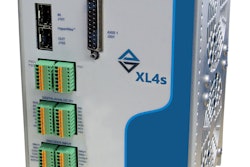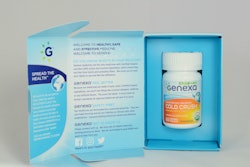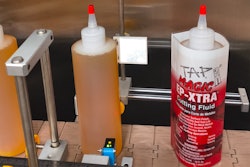Pyramid Pens opened five years ago in Colorado to fill a specific need. Partners Jake Berry, CEO, and Coley Walsh, CFO, both come from marijuana grow and dispensary backgrounds, so as pioneers in cannabis, they were able to identify gaps in the market that others might not have seen. Soon after Colorado’s Amendment 64 passed legalizing recreational cannabis in 2012, the pair was quick to recognize and address the lack of variety in the cannabis vaporizing (vape) market.
“The landscape was stagnant. You could only buy vape pens from one or two companies, and the quality wasn’t there, at least not at an affordable price,” Berry says. “Another thing I saw was that nobody was branding very well with their packaging.”
Supermarket-trained consumers are used to a certain level of professionalism in the packaging with which they interact. It engenders feelings of safety and trust in the product within. That was missing in the vape pen marketplace.
“Plus, the biggest expense for companies like us is labor force. Our goal was to limit our labor force, pay them a little bit better to lower that turnover rate—this industry’s turnover rate is incredibly high—and keep our expenses down. The only way we could see doing that was by figuring out innovative, streamlined packaging solutions that would work for the whole product line.”
Primary product lines
Pyramid Pens’ bread-and-butter products are cartridges, filled with cannabis extract, designed to be loaded into vape pens and vaporized (consumed). Many consumers consider these cartridges single-use and simply discard spent cartridges. But Pyramid recognized that these cartridges could be reloaded with a syringe-like refilling device. This refill product became popular with more price-conscious consumers; however the China-sourced cartridges remain the lion’s share of sales. But according to Berry, it was the secondary packaging that was the major drawback of early packaging iterations since it effectively hid the attractive product from the consumers’ view.
“The product we sell is a high-priced item. It’s one of the highest-priced items in a dispensary, actually,” Berry says. “I want the customer to be able to see and understand what they’re buying. They’re about to spend 40 to 60 dollars on one of these products, so we need to make them feel comfortable purchasing it.”
Eschewing the bulky, child-resistant boxes their competitors had used, Berry sought to employ a transparent blister pack. An extra benefit of this pack would be the small size—competitors’ boxes were difficult for dispensaries to hold in inventory because such facilities tend to be tight on space.
Adventures in sourcing
But despite all of Berry and Walsh’s experience in cannabis, neither had any experience in sourcing packaging. They initially turned to a packaging consultant—Berry calls them “a middleman group.”
“We really weren’t happy with the quality of things. The printing on the packages was different than what we were led to believe. It wasn’t what we wanted, and it was purchased the cheapest way possible. Still, we paid more money than what we should’ve paid for a similarly priced product since we were going through a packaging service, essentially,” Berry says. “I decided that I would be more prepared and take much more control over my next foray into packaging. We needed to find our own supplier, one we could be happy with that could achieve a better-looking product for the consumer. I started researching—figured out what blister packs were, where cards fit in. I needed to find a company that could manufacture these blister packs specifically for us. That’s how I came across Transparent Container Company [TCC].”
At first, TCC, which was recently acquired by Rohrer Corp., helped Berry with lead times and quotes. The next project was to take Pyramid Pen’s incumbent cartridge blister pack and reconfigure it into a universal design—one that could fit existing and future products. By meeting directly with the TCC sales and design team, Berry found he could quickly realize cost and time savings. TCC not only designed a universal blister pack that met his criteria, but the improved design also cut down on machine changeovers. This meant that the company could package all products on the same platform, translating into increased productivity, flexible packaging options, and faster shipping—a welcome edge in this competitive market. To date, the cannabis company has enjoyed a 30% boost in efficiency due to the universal design eliminating the machine changeover.
Two-for-one paperboard box
The next project provided a first-ever challenge for the TCC design team—a universal, prism-shaped paperboard box. The packaging supplier was also tasked with creating two custom inserts for each of two disparately-shaped cannabis oil containers: one for the aforementioned refill syringe, the other for a short, round jar for use in non-vape smoking apparatuses.
“The syringes and jars change sizes based on how much we fill, and we sell multiple different sizes. So these two products just weren’t going to work with a blister,” Berry says. “And honestly, the amount of tooling that we’d have to invest in to get these syringes to work in a blister pack was going to cost more than what we make off these lines. These are not huge-volume products, they are much more specialty.”
The differing dimensions of the two primary packaging containers, a jar and a syringe, mandated custom inserts both for product presentation and stabilization. A short time later, TCC came back with their initial designs and quotes. The two custom inserts incurred additional tooling costs that went over the proposed budget. But the two parties collaborated on a solution that involved designing a universal insert that would accommodate both oil containers.
The unique triangular shape of the box presented a problem for folding flat—a design challenge that was caught before production started. Berry suggested incorporating a hidden score line for easy folding, and TCC was able to accommodate. This design collaboration helped avoid costly time and production headaches down the road.
Navigating the child-resistant hurdle
When Pyramid Pens invested in the blister-pack design and accompanying heat-sealing equipment, there wasn’t any child-resistance requirement. But that changed soon after they went all-in on the blister pack.
“Right now, there is not a true child-resistant blister pack available on the market,” Berry says. “But we loved the shelf-appeal of the product. We were in a conundrum. We have this product, and everybody loves the packaging. How can we sell it and still have it be child-resistant? We realized that there are certified child-resistant flexible bags that could contain our blister packs. We did the math and decided it was still cheaper for us to buy all of these child-resistant flexible bags, provide them to the dispensary along with our products, and have the dispensary place our product in an exit package at the time of sale. It’s still cheaper to do that than to buy the actual child-resistant secondary packaging and spend the amount of time and labor to build those boxes out.”
Plus, by section R-1006 A. of Colorado legislation around retail cannabis packaging, the concept of a child-resistant exit package, added at the dispensary to hold a non-child-resistant secondary package off of the shelf, is explicitly permitted. If the secondary packaging itself were to be child-resistant, it would also have to be opaque to hide its contents from observers, something Berry was against from the get-go.
While the child-resistant packaging legislation’s heart is in the right place, Berry points out how it’s an unnecessary precaution in his case. The cartridges and refill syringes he sells are child-resistant by nature. A consumer can’t just open a blister pack and start using the product without ancillary equipment, like a battery-powered vape pen of the right size and power. Pyramid Pens’ products aren’t like edibles, like candy or chocolate—they’re plastic devices containing oil. But that’s just another example of the newness of the market.
“We want to release the first child-resistant blister package. That is our goal, at least for this industry, if for no other reason than to avoid buying these child-resistant bags,” Berry says. “We also want to make it less labor-intensive for bud tenders at the dispensary. They don’t get paid very well, and any extra step we ask of them is asking a lot of these individuals.”
The blister packs
Cartridges are filled by hand, then travel to a semi-automatic packaging department manned by four operators. A pack consists of two cardstock pieces, a front and a back, plus a custom-molded blister. An operator places the bottom card into the semi-automatic heat-sealing machine, and the blister is placed on top of that. A cartridge is placed inside, then the operator adds the cardstock backing. A layer of glue is dispensed between the two cards. When the press comes down, it both heat-seals the blister and glues those two card pieces together to arrive at a shelf-ready product.
Because Colorado is a comparatively mature, competitive market, Pyramid Pen’s roughly 3,000 packaged products per day don’t merit much else by way of automation; that volume doesn’t justify automation when hand labor can do the job, according to Berry. But Pyramid Pens is in the midst of expansion into a second state as Berry and Walsh await a license in Michigan, the latest state to have legalized recreational cannabis.
“In Michigan, though, we are planning on automating since we’re anticipating much higher sale numbers than we experience here in a more competitive market,” Berry adds.



























